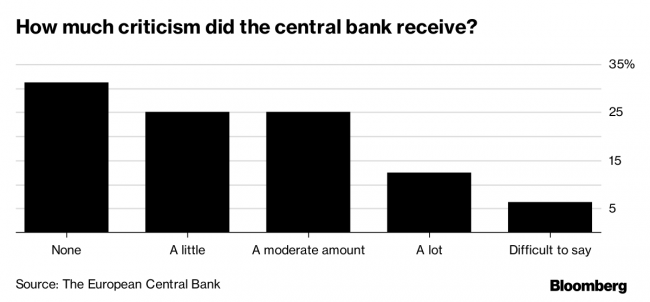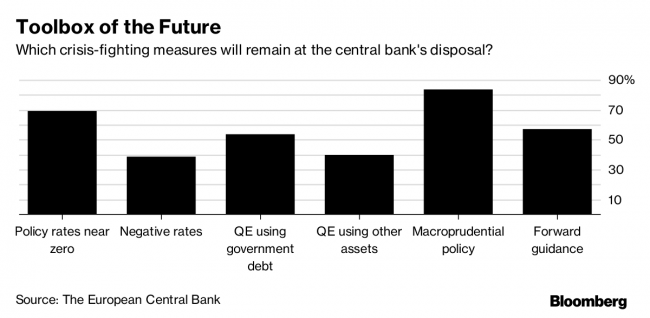(Bloomberg) -- The global financial crisis has changed central banking for good, at least if its practitioners have their say.
Top officials at 55 monetary policy institutions were asked in a European Central Bank study whether the emergency measures introduced during the crisis -- from negative rates to quantitative easing -- will remain in the monetary-policy toolbox for the future. The answer was yes for near-zero rates, government-bond purchases and forward guidance as well as macroprudential tools. The jury is still out on negative rates, with most respondents saying it was too early to tell.
“The concrete form of these changes, however, seems less certain,” says the study, led by the ECB’s Michael Ehrmann. “With regard to forward guidance, for instance, most academics would like to tie its horizon to incoming data, whereas central bankers prefer purely qualitative forward guidance not tied to either economic data or calendar dates.”
The crisis has also led most policy makers to reconsider their responsiblities, leading many to move beyond a narrow focus on inflation to take financial stability into account. And while academics, who were also part of the survey, felt central banks’ independence came under attack for the crisis response, unflappable officials actually felt criticism was, at most, modest.
Major changes in central-bank leadership could yet change the landscape. U.S. President Donald J. Trump is currently looking at a short-list that includes economist John Taylor on who will take over at the U.S. Federal Reserve. The Bank of England's Mark Carney and the ECB's Mario Draghi, who both implemented crisis measures at their institutions, will step down in 2019.
The study took place between February and May 2016.
(For more economic analysis, see Benchmark)

